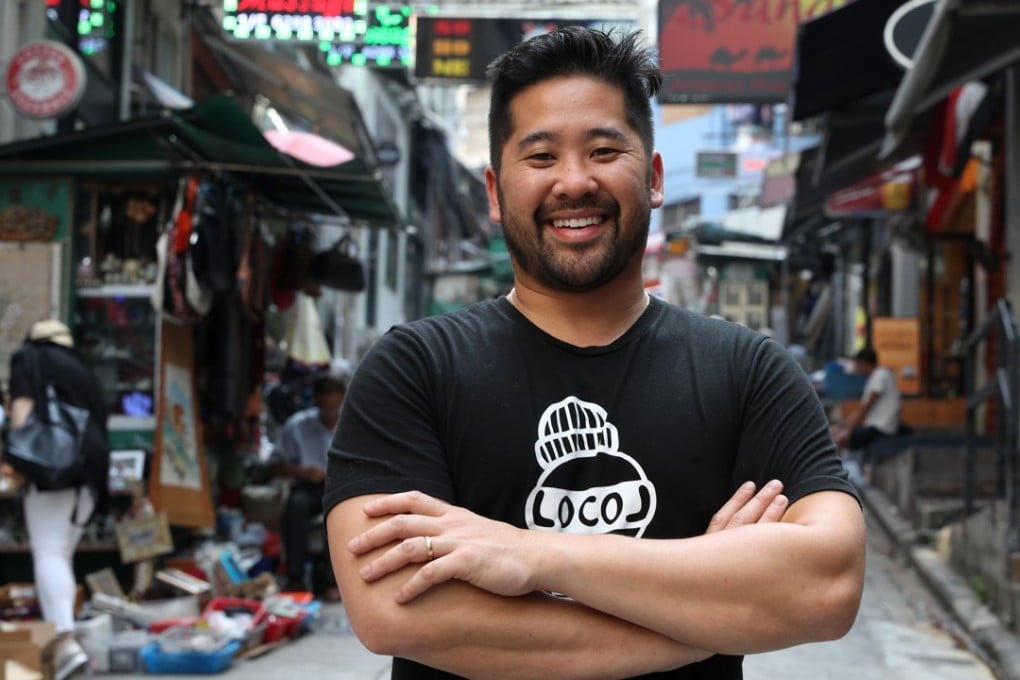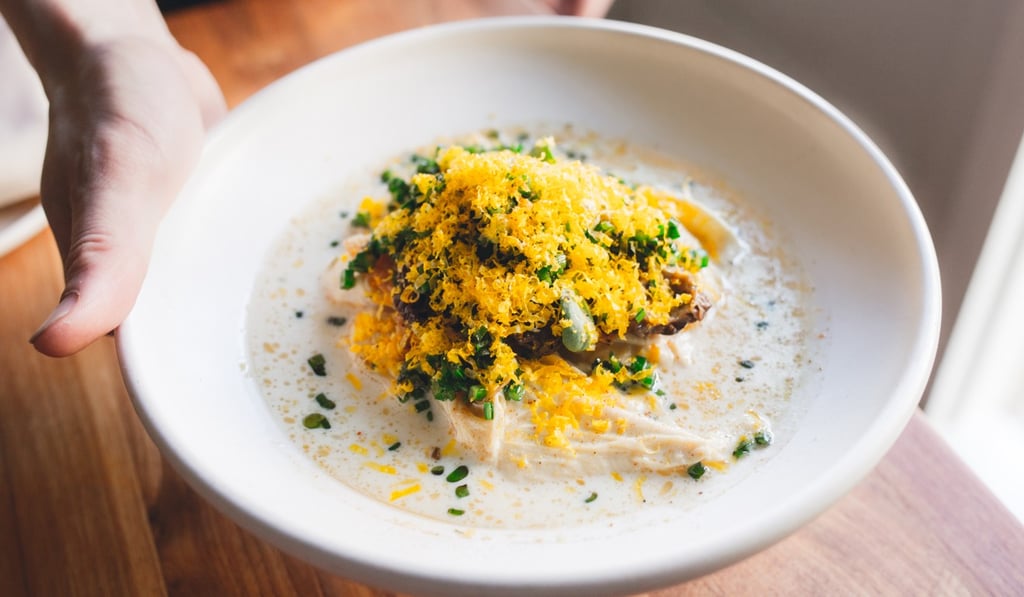San Francisco Chinatown chef’s quest to earn respect for Chinese-American cuisine
- Brandon Jew, chef-owner of one-Michelin-star Mister Jiu’s, saw in Italy the respect accorded to regional cuisine, and wanted the same for the food he knew
- He talks about learning from China, and his big regret – not speaking Chinese

Is this your first trip to Hong Kong? “No. The first time I came to Hong Kong was when I was in high school, on a family trip with my parents and grandparents for a big tour of China in 1995. We came to Hong Kong for four days. It was my first time out of the United States. There was a lot of ‘eyes wide open’, there was so much to learn and absorb. Hong Kong to me represents a mix of cultures and I always find it fascinating to see Chinese food in places that have been influenced by other cultures.”
What did you grow up eating? “Dishes like pork and salted fish, and chicken feet were nostalgic for my parents. I didn’t grow up liking those dishes, but by seeing my parents enjoy them so much, I started to understand why they love them and then came to love them myself. My parents were blue-collar, and a lot of the time I helped my mom prepare food, like making rice and cutting up vegetables, so when she got home it was easier for her.”
How did you get into cooking? “In 1998, during my freshman year at the University of California, Irvine, I fell into cooking as a job. I started as a busboy, then a food runner and then became a cook because someone called in sick. I was studying biology and didn’t know what I was going to do with it. I always liked plants and animals, which is why I’m interested in food.
“My dad was a cop in San Francisco and, at one point, I was interested in forensics but he didn’t want me to do criminology. I told my parents I was interested in cooking, and they were like, ‘No’. Towards my senior year, however, I realised I liked cooking more than anything else.”
Where did you learn? “I had just graduated and looked into culinary schools but they were too expensive. I talked to cooks and they said just travel around Europe and find an apprenticeship. So I went to Italy – first Piedmont, then Bologna, in 2001. My parents thought I was crazy.

“In Italy I learned there was regional pride and observed how anal they are and love the traditions of where they are from – that stuck with me. When you’re cooking, you’re paying homage to people who have taught you those recipes and you’re remembering them through cooking.